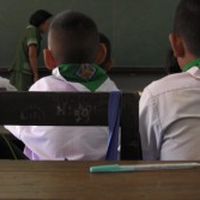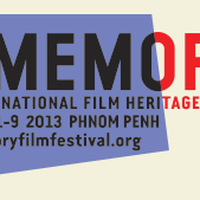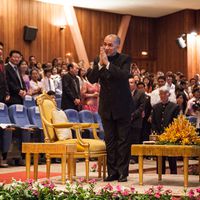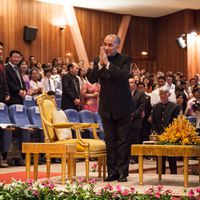Asia Europe Film | Looking at History through Film Archives

Their selection of surprising historical footage and revelatory amateur films on the region will be screened at the Bangkok Experimental Film Festival 6 (BEFF), scheduled to open in December 2011. The Festival focuses on innovative programming and using a global historical framework to create a context for high-quality public discourse on the social and aesthetic values of marginal forms of moving images.
Initiated by Project304, a non-profit art space that supports contemporary artistic and cultural activities, Centre for Research and Education in Arts and Media, University of Westminster, UK, the project gathered six well-known curators. They were: Dr Richard MacDonald from Goldsmiths College, University of London; Dr May Adadol Ingawanij from University of Westminster; Geneva-based film archivist Ms Brigitte Paulotwitz; Ms Chalida Uabumrungjit from Thai Film Archive; London-based independent curator Mr George Clark; and Thailand’s leading film critic, programmer and film cultural activist, Mr Wiwat Lertwiwatwongsa.
The project aims to use archive material to encourage viewers to look on history from a different perspective and reflect on the relationship between mechanical technology, everyday life and historical modernities in Asia.
The journey into the forgotten film archives started with Dr MacDonald’s research on the holdings of the Film and Video Archive of the Imperial War Museum (IWM), London. He was able to view materials from two significant collections on Southeast Asia between 1933 - 1949: Colonel Hodgkinson’s amateur films and the Southeast Asia Command film collection. The collections include a unique selection of pre-Second World War colour Kodachrome 16mm films shot in Malaya and Burma.
Taking a different approach, Dr Ingawanij researched the holdings of the Thai Film Archive for its home movies collection and documentation of performances by film storytellers (known in English as versionists). She has chosen aesthetically and thematically outstanding home movies to be presented at the Festival as examples of Siam’s proto-experimental film making. She extended her research into the film storytelling practices of the versionists working during the 1950s and 1960s in order to showcase this forgotten aspect of cinema history as one of the Festival’s activities.
While in the Netherlands, Ms Paulowitz researched the collections of the Eye Film Institute and the Beeld en Geluid Institute Archive (The Netherlands Institute for Sound and Vision). Thanks to her connection with the Eye Film Institute in particular, she was able to view several significant collections of home movies as well as amateur and colonial films from the Dutch East Indies. This selection of private films gives an unusual insight into the Dutch colonial period and the recording and narration of colonial life through mechanical technology. These include home movies shot by middle-ranking Dutch colonial officers and a fascinating collection of amateur films belonging to a wealthy Chinese-Indonesian-Dutch family.
Known across Southeast Asia for her pedagogical and volunteer work with the institutions of the region, Ms Paulowitz was asked to give archive consultation sessions and run an impromptu training session on basic archiving for staff of the Indonesian National Archive when she contacted them about this project.
Another highlight was the research conducted in Shanghai by Ms Uabumrungjit on the holdings of the Shanghai Film Archive, Shanghai Audio Visual Archive and the Quyang Library. She has selected modernist feature films made in Shanghai before the Second World War, which is expected to generate considerable interest.
At the Hong Kong Film Archive, by orienting his research on the accessibility of his source, Mr Clark had the opportunity to line up an impressive range of materials for the Festival’s programme concerning the relationship between the home movie and documentary modes. These include materials relating to the Japanese occupation of Hong Kong during the Chinese civil war, materials on the 1966 Star Ferry Riots, records of the city’s expansion during the 1950s - 1960s and home movies made by Hong Kong’s photographers.
While working on the Raiding the Archives project, curators discovered the specific approaches necessary for generating materials from different archive institutions. For example, those archives that do not as yet prioritise broadening public access proved to require a long lead-in period for making contact and undertaking other background preparation prior to the actual research visit.
To present the different stages of the project, the Festival organisers plan to publish a catalogue with a series of articles by each curator focusing on selected issues stemming from their archive research and diary. Apart from information on the featured materials, the organisers also aim to stimulate interest in film history by including poems, stories and images drawn from extant Thai film magazines of the early 20th century.
Follow the curators testimonies and the development of the Bangkok Experimental Film Festival on the project's website: http://beffbeff.com/
Similar content
from - to
24 Jan 2012 - 05 Feb 2012
from - to
01 Jun 2013 - 09 Jun 2013




